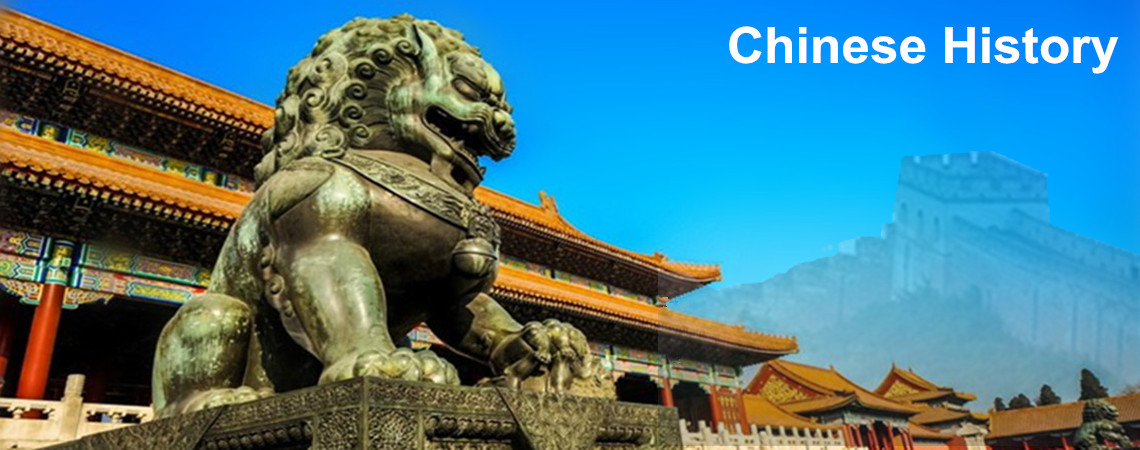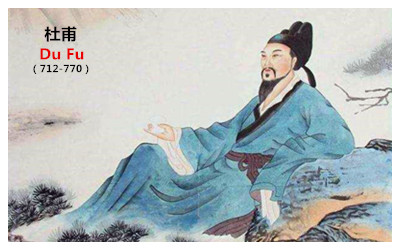
Du Fu 杜甫,a famous poet
 Du Fu (杜甫 712-770), lived in middle age of Tang Dynasty, is praised as the exemplary realist poet inthe history of Chinese literature, mirror the social outlook of the onceprosperous Tang Dynasty in decline. Du Fu's poems are rich in socialcontent, and have a distinct epochal character and a definitive politicalinclination. Du Fu's poetry fervently appeals to the nation in the upliftingspirit of self-sacrifice. Du Fu was, therefore, called the "The Sage ofPoetry" and his poems are praised as "epic poetry."
Du Fu (杜甫 712-770), lived in middle age of Tang Dynasty, is praised as the exemplary realist poet inthe history of Chinese literature, mirror the social outlook of the onceprosperous Tang Dynasty in decline. Du Fu's poems are rich in socialcontent, and have a distinct epochal character and a definitive politicalinclination. Du Fu's poetry fervently appeals to the nation in the upliftingspirit of self-sacrifice. Du Fu was, therefore, called the "The Sage ofPoetry" and his poems are praised as "epic poetry."
Du Fu wrote more than 1,000 poems throughout his life, the famousones included Three officers, Three Partings, A Song of Chariots, MyThahoed Hut iS Wrecked by the Autumn Wind A Song of Fair Ladiesand A spring View. Du Fu's poetry offered great sympathy to commonpeople and revealed the sharp contradiction between exploiter andexploited in feudal society. "Wine and meat rot behind vermilion gates,while on the roadside, people freeze to death" has been a line indeliblyinscribed in the minds of generation after generation of Chinese people.A spring View and Upon the News of the Recopture of Henan and Hebeiby the lmperial Armies shows the poet's great love for his motherland.A Song of Chariots and A Song of Fair Ladies not only praise the people'sdesire to serve the country, they also expose the malfeasance of a warlikeruling class. Some of Du Fu's poems focus on describing scenery orreflecting the love between couples, among brothers and friendsl yetthey were also infused with the poet's deep feelings for the motherlandand the people. In short, Du Fu's poetry is an artistic recounting of theturn in the fortunes of the Tang Dynasty. In the history of Chineseliterature, Du Fu's poetry is unmatched in its rendering of enlightenmentand elegance.
In writing poems, Du Fu often hid his Subjective feelings behindobjective description. For example, in A Song of Fair Ladies, he did notdenounce Lady Yang and her brother's wanton way of life directly butdescribed their finery and diet in great detail, which implicitly unveilsthe poet's attitude.
The language in Du Fu's poems is simple, easy and natural. Du Fuwas good at accentuating a character's personality through soliloquyand common sayings. He was particularly skillful at the detailing ofcharacterization, best illustrated in the paragraph describing the wifeand children in Expedition to the North. The style of Du Fu's poetry canbe summarized as deep, implicit and modulated in tone.
All of these merits establish Du Fu's status as "The Sage of Poetry"in a history of more than 3,000 years of Chinese literature.







 Ask Questions ?
Ask Questions ?